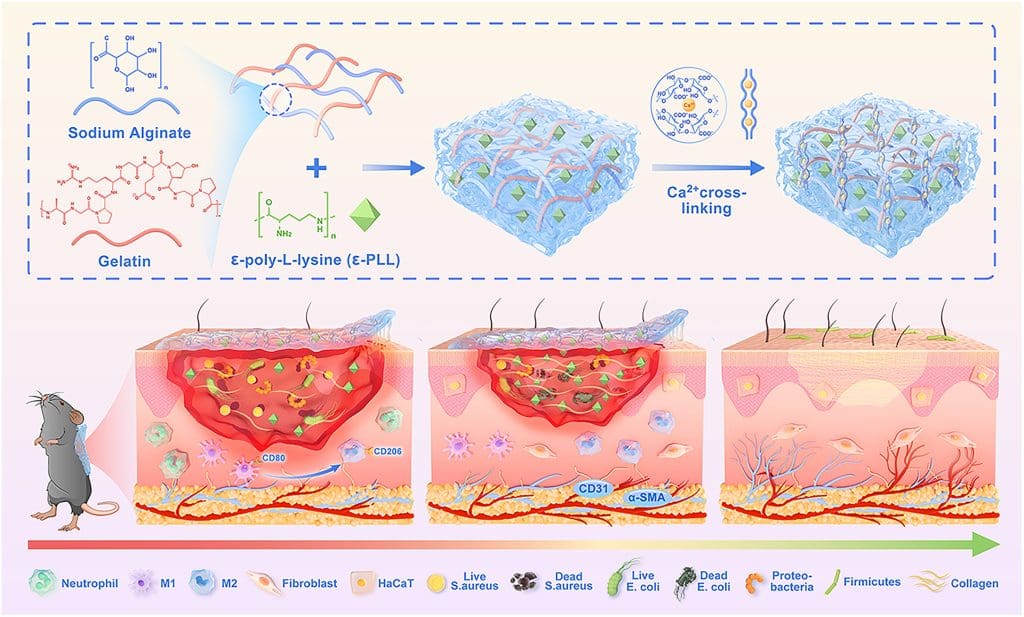New hydrogel developed to treat infected wounds
A research team from several renowned Chinese institutions has developed an innovative hydrogel that could revolutionize the treatment of infected wounds. The PSG15 hydrogel, consisting of Īµ-poly-L-lysine in a sodium alginate/gelatin matrix, effectively fights infections while promoting wound healing. The results of the study, published in the journal “Burns & Trauma”, show promising applications for clinical wound care.
Infected wounds, especially those caused by bacteria such as Escherichia coli and Staphylococcus aureus, pose a growing challenge as antibiotic resistance limits the effectiveness of conventional treatments. Hydrogels offer an alternative by releasing active ingredients specifically at the wound site. So far, however, only a few hydrogels have been able to both control infections and support tissue regeneration. The new PSG15 hydrogel addresses this dual challenge by integrating an antimicrobial peptide into a biocompatible matrix.

The hydrogel was produced by cross-linking sodium alginate and gelatin with calcium chloride and was extensively tested for its mechanical properties, biocompatibility and antibacterial effect. In laboratory experiments, PSG15 reduced bacterial contamination by E. coli by 89.53% and by S. aureus by 92.21%. In animal models, it accelerated wound closure, promoted the formation of new blood vessels, and supported collagen deposition. Histological analyses showed improved tissue regeneration with better organized collagen fibers and an increased number of new blood vessels compared to untreated wounds.
Another advantage of PSG15 is its ability to modulate the inflammatory response by directing the polarization of macrophages towards a regenerative phenotype. In addition, the hydrogel preserves the diversity of the skin microbiota, which prevents the overgrowth of pathogenic bacteria. These properties make PSG15 a promising candidate for clinical use, as it not only fights infections, but also supports healing and could reduce dependence on systemic antibiotics.
The researchers emphasize that PSG15 is particularly suitable for clinical use due to its biocompatibility and non-toxicity. Future studies are expected to investigate the hydrogel’s efficacy in chronic wounds, such as diabetic ulcers, and further explore the mechanisms of its interactions with the skin microbiota to further optimize its therapeutic potential. With these properties, PSG15 could make an important contribution to combating antibiotic resistance and improving wound care.
Original Paper:
Read Also:
Breakthrough: Hydrogel can heal like natural skin – MedLabPortal
Editor: X-Press JournalistenbĆ¼ro GbR
Gender Notice. The personal designations used in this text always refer equally to female, male and diverse persons. Double/triple naming and gendered designations are used for better readability. ected.




